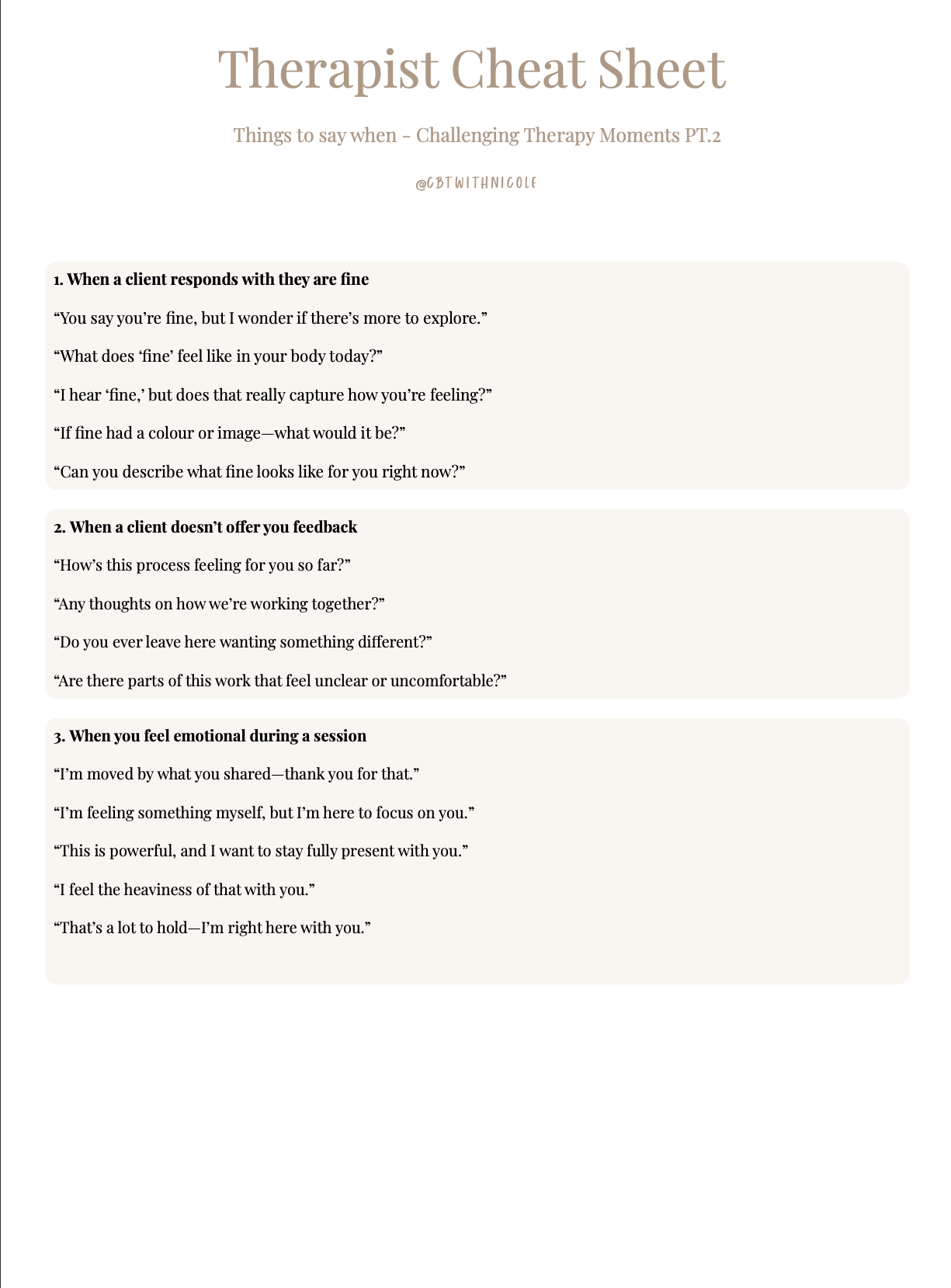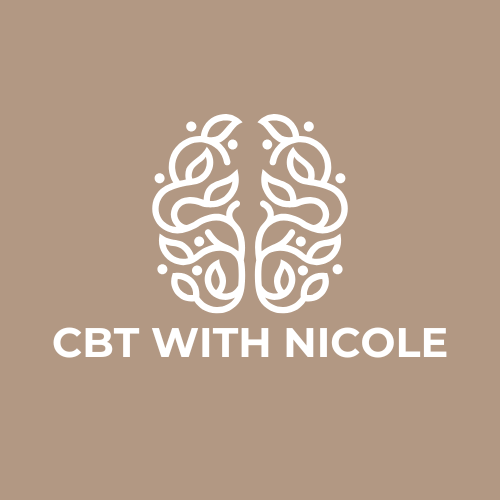 Image 1 of 1
Image 1 of 1


Therapist Cheat Sheet: Things to Say During Challenging Therapy Moments (Pt. 2) Free Download
This downloadable cheat sheet is designed to support therapists during those subtle yet significant turning points in session—when clients go quiet, deflect, or when your own emotional response is stirred. These moments matter. And what you say next can make all the difference.
Whether you're just starting out or deep into your practice, this guide offers therapist-tested language to gently deepen the work while preserving safety, attunement, and presence.
Included in this cheat sheet:
When a Client Says They’re “Fine” – Help clients move beyond surface responses with compassionate curiosity and sensory-based prompts that invite deeper reflection.
When a Client Doesn’t Give Feedback – Encourage open dialogue about the therapy process itself, promoting transparency and collaboration in the therapeutic alliance.
When You Feel Emotional in Session – Learn how to name your own feelings ethically and empathetically—while keeping the focus on the client and maintaining a grounded presence.
Each section includes:
Sample therapist prompts
Trauma-informed phrasing
Relational nuance for handling sensitive moments
Print it. Save it to your notes app. Stick it in your therapy binder.
Because holding space doesn’t always come with the perfect words—but now it can come with a little support.
This downloadable cheat sheet is designed to support therapists during those subtle yet significant turning points in session—when clients go quiet, deflect, or when your own emotional response is stirred. These moments matter. And what you say next can make all the difference.
Whether you're just starting out or deep into your practice, this guide offers therapist-tested language to gently deepen the work while preserving safety, attunement, and presence.
Included in this cheat sheet:
When a Client Says They’re “Fine” – Help clients move beyond surface responses with compassionate curiosity and sensory-based prompts that invite deeper reflection.
When a Client Doesn’t Give Feedback – Encourage open dialogue about the therapy process itself, promoting transparency and collaboration in the therapeutic alliance.
When You Feel Emotional in Session – Learn how to name your own feelings ethically and empathetically—while keeping the focus on the client and maintaining a grounded presence.
Each section includes:
Sample therapist prompts
Trauma-informed phrasing
Relational nuance for handling sensitive moments
Print it. Save it to your notes app. Stick it in your therapy binder.
Because holding space doesn’t always come with the perfect words—but now it can come with a little support.

